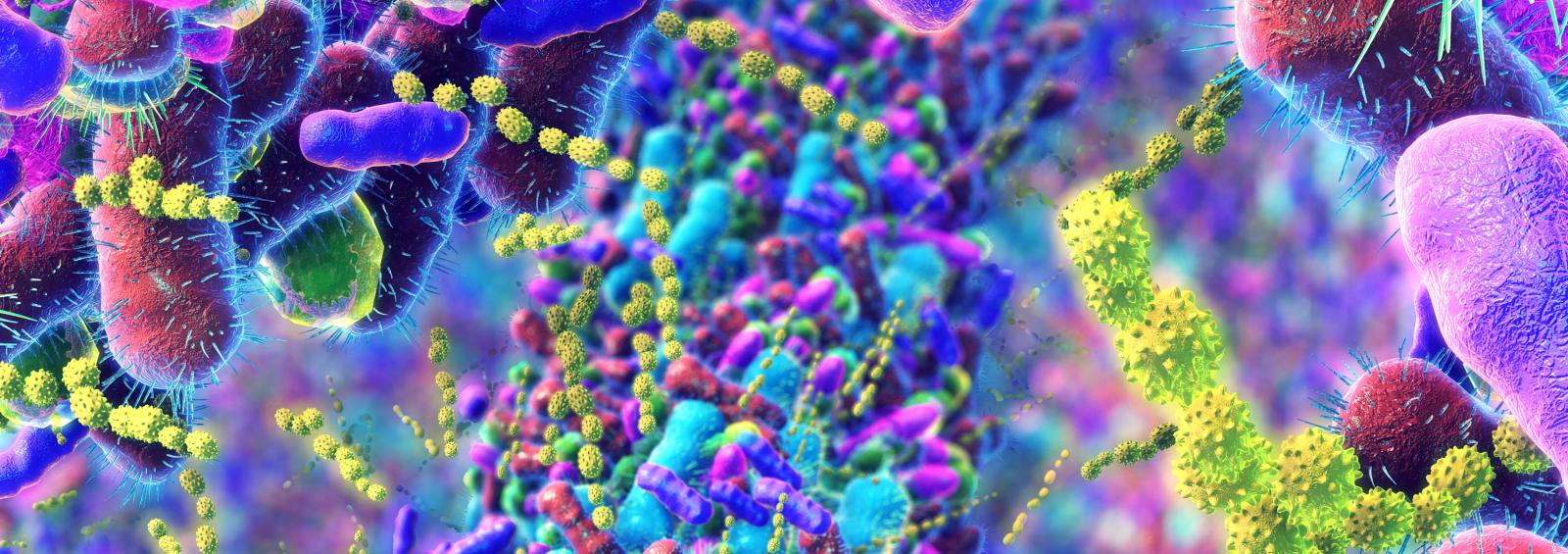Scher Lab

NYU Langone’s Scher Lab focuses on psoriasis and psoriatic arthritis (PsA), the microbiome’s role in dysbiosis and autoimmunity, and the mechanisms underpinning other autoimmune- and immune-mediated diseases (AIMDs).
Through the Psoriatic Arthritis Center, we are conducting basic, translational, and clinical research aimed at revealing the disease’s pathogenic mechanisms and bolstering the field’s prevention, diagnostic, and therapeutic strategies. One major goal is to identify measurable cellular and molecular signals that can tell us which patients with psoriasis are likely to develop severe forms of the disease and identify which of the roughly one-third of patients with psoriasis will develop PsA.
The human microbiome is a well-established immunomodulator of inflammatory disorders such as psoriasis and PsA, and our lab has been at the forefront of studying the growing links between intestinal dysbiosis and psoriatic diseases, including the decrease in beneficial commensal microbes and fatty acids. In both animal models and human clinical samples, we have extensively characterized microbe–host interactions and explored their potential to identify new diagnostic and therapeutic targets.
As another integral part of our lab’s research portfolio, we’re exploring whether the gut microbiome can be altered to accelerate an effective initiation of methotrexate therapy in RA patients. Similarly, we’re exploring the potential effects of bacterial short-chain fatty acids on gut microbes and regulatory immune response in RA patients.
To facilitate our clinical, basic, and translational research, we have created a range of tools and resources, including the NIH-funded NYU Microbiome Center for Rheumatology and Autoimmunity (MiCRA), which we launched in 2009 to better understand the microbiome’s role in rheumatic diseases. MiCRA has enrolled hundreds of healthy participants and volunteers with autoimmune disease and collected thousands of blood, fecal, oral, skin, and synovial biosamples.
In addition, we have set up the National Institutes of Health (NIH)–funded Accelerated Medicine Partnership (AMP) Microbiome Technology and Analytic Center Hub (Micro-TeACH) in collaboration with Jose Clemente, MD, at the Icahn School of Medicine at Mount Sinai. Micro-TeACH is a suite of validated and custom technologies to characterize and analyze microbiome features in samples and tissues derived from patients with AIMDs. With our growing collection of specimens from patients, we are characterizing baseline and posttreatment samples using a range of multi-omics tools, including 16S-seq, metagenomics, metatranscriptomics, and metabolomics, to clarify how the microbiome, disease progression, and pharmacologic and other interventions are all linked.
Beyond the Psoriatic Arthritis Center/MiCRA biorepository’s critical role in furthering our psoriatic disease research, we are focusing on a volunteers who have new-onset or chronic rheumatoid arthritis (RA). This patient group is the largest and most comprehensively phenotyped RA cohort in the United States. In addition, our lab established the NORA (new-onset rheumatoid arthritis) cohort to provide even more insights about the microbiome in this patient population.